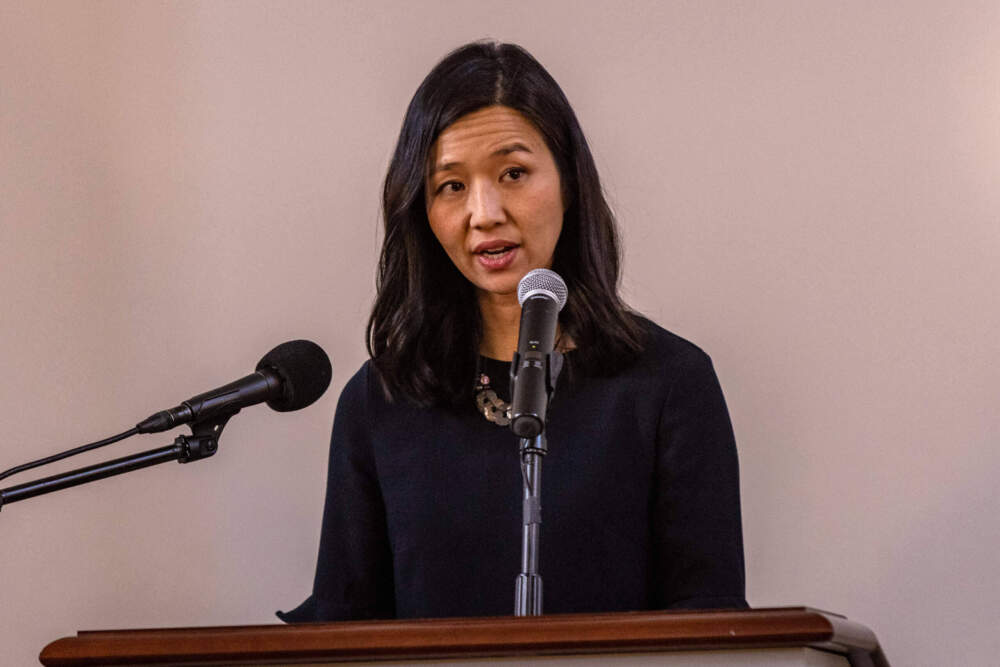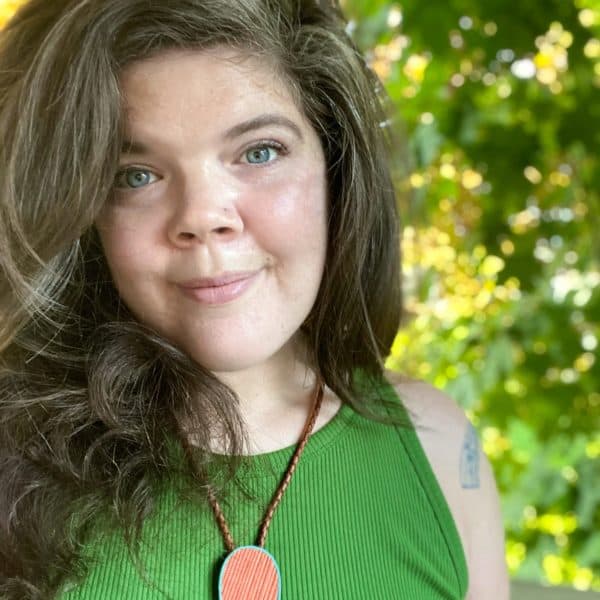Advertisement
Boston Mayor Michelle Wu on what's next for those living at 'Mass. and Cass'
Resume
In a newly announced plan to tackle homelessness, drug use and criminal activity in the city, Mayor Michelle Wu on Friday doubled down on the importance of removing tents from the area around Massachusetts Avenue and Melnea Cass Boulevard, known as "Mass. and Cass."
Sweeps have been a controversial approach, one that Wu has criticized in the past. So on Friday, Wu emphasized that the proposal put forward isn't a repeat of the police sweeps of the past. Although the plan gives the Boston Police Department greater authority to patrol the "Mass. and Cass" area and to clear encampments, police officers would work alongside clinicians to first move people into housing or access other support before any tents are removed.
As Wu told WBUR's Radio Boston, the city now has the capacity to absorb that need.
"I think we have finally arrived at a point where the public health and housing infrastructure is secure enough — is working and has made enough of a difference," she said.
"At the same time ... we've seen a growth and disturbing increase in some of the criminal activity that's happening there. And we're at a point where we can take action to really ensure that we continue the direct services and housing and health approach, but also have the authority and plans and operations in place to address public safety fully," she added.
A key piece to this strategy is adding enough temporary shelters beds to transition people out of tents. Wu proposed 30 temporary beds in the Boston Public Health Commission office at 727 Massachusetts Ave. This aspect of the plan is drawing pushback from groups like the South End Forum and the New Market Business Association.
The mayor expects to file the ordinance with the city council on Aug. 28.
Interview highlights
This conversation has been lightly edited for clarity.
On why the mayor thinks removing tents at Mass. and Cass is important:
"[A 2021 executive order that allows the city to remove tent encampments] requires a 48-hour notice period, and that makes it functionally very difficult to implement because ... all the tents are coming down every 24 hours or 48 hours, but they're going right back up in a different location...
"What makes it very complicated right now is that the vast majority of the illegal behavior, the criminal activity, is happening under tents and tarps. So we're really trying to separate out who's in a tent because they have nowhere else to sleep — and continue to provide services and identify those individuals. But then remove the ability for tents and tarps to shield the violence and human trafficking and other criminal activity that has been taking place.
"Boston police have made it very clear that they believe that type of clarity is necessary. If we can get everything out into the open, then the enforcement will become much smoother."
On adding temporary shelter beds:
"Our teams ... are out there every single day, know who is on the street by name and what their individual life histories, medical needs and other situations are. So we know from those conversations that of the 200 people who might be gathering on any given day at Mass. and Cass, a relatively few number are actually there in need of shelter and services ... And so [the temporary shelter beds] will be about the group of up to 30 people — who are already working with our health outreach workers and case managers — to have that space.
"And as soon as they transition out into permanent housing or transition into the next available low-threshold site elsewhere, that location will be shut down as a sleeping space ... And we will not be backfilling the spots as has been happening in the other locations."
On feedback Wu expects from city councilors and the public:
"I think everyone is coming with a lot of context from previous years, a lot of memories of what didn't work and the horrible images which we don't want to replicate of people simply being swept out of an area without the infrastructure for health and housing that has been put in place.
"The ordinance has been modeled after directives ... ensuring civil liberties and adequate protections. There must be shelter available. There must be transportation to that shelter. There must be storage for belongings."
On what's changed since the city cleared Mass. and Cass encampments in January 2022:
"Previously, there had been many, many streets with large scale encampments and wooden structures that have been built without daily street cleanings and lots of sanitation concerns, in addition to life safety concerns. Since then, it has been near daily cleanings with any structures, tents and tarps being taken down for cleaning, power washing of the street.
"[There are] nearly 200 low-threshold housing with 24-hour medical services, all created to help people on their path to recovery; nearly 500 people have accessed housing through that. And 149 people, as of today, have reached permanent housing through this transitional set of steps."
This segment aired on August 25, 2023.

